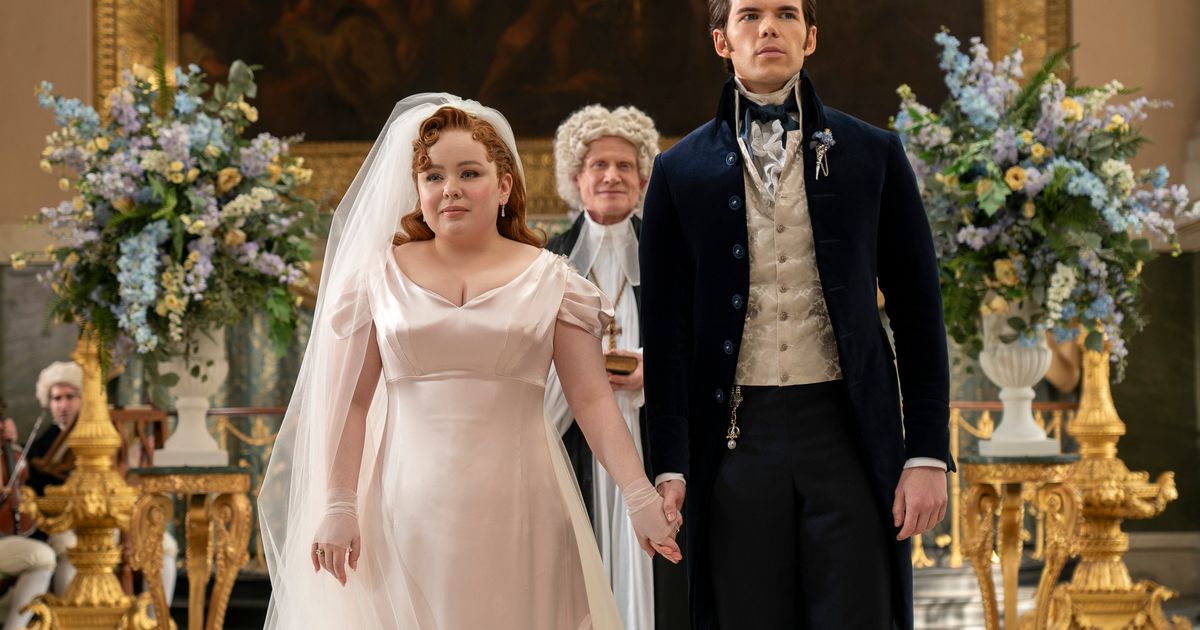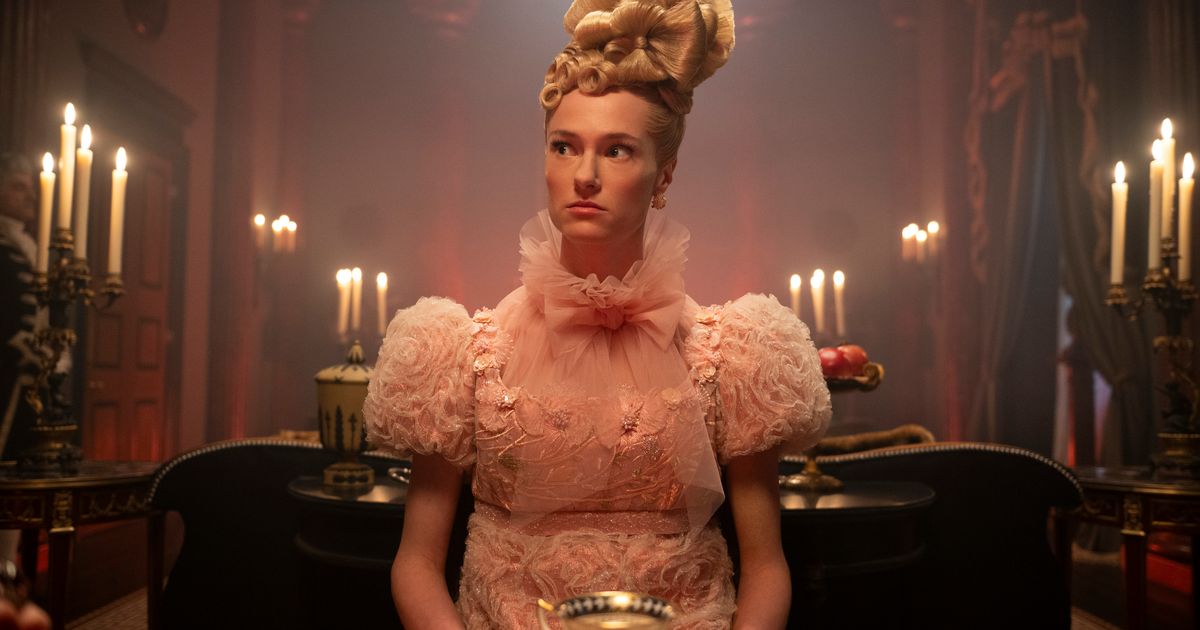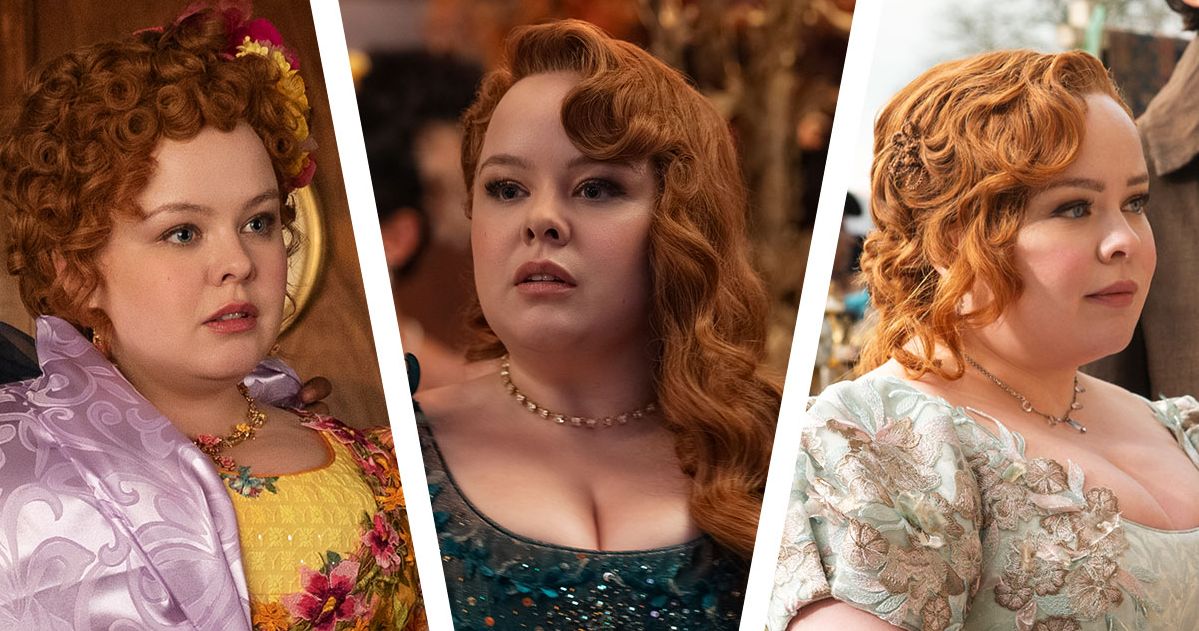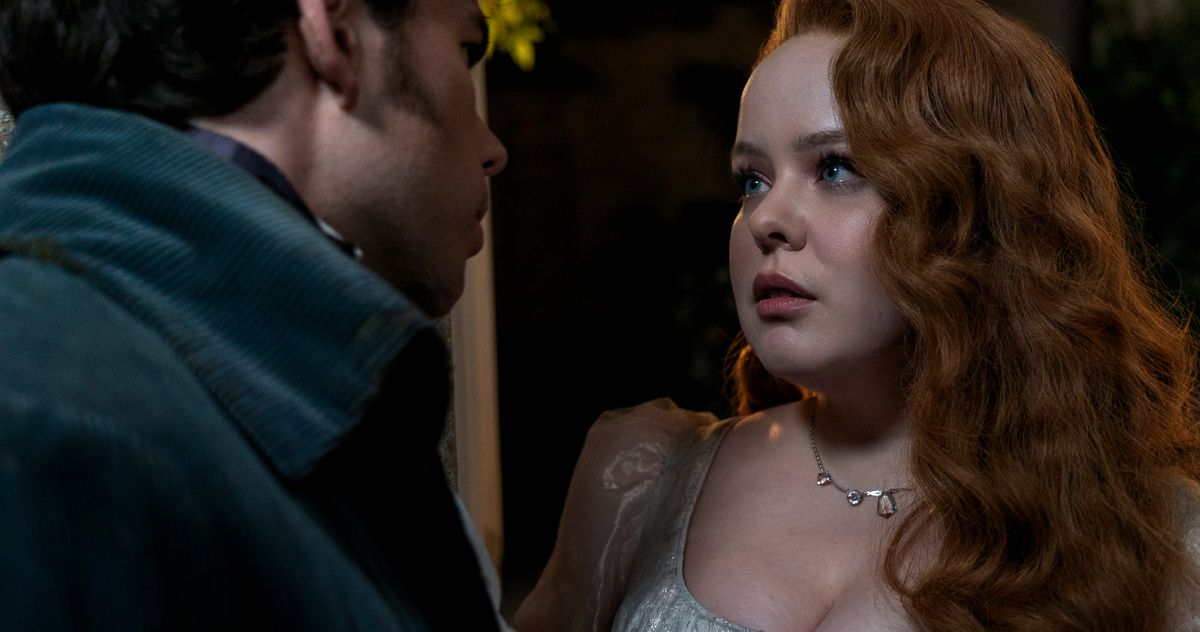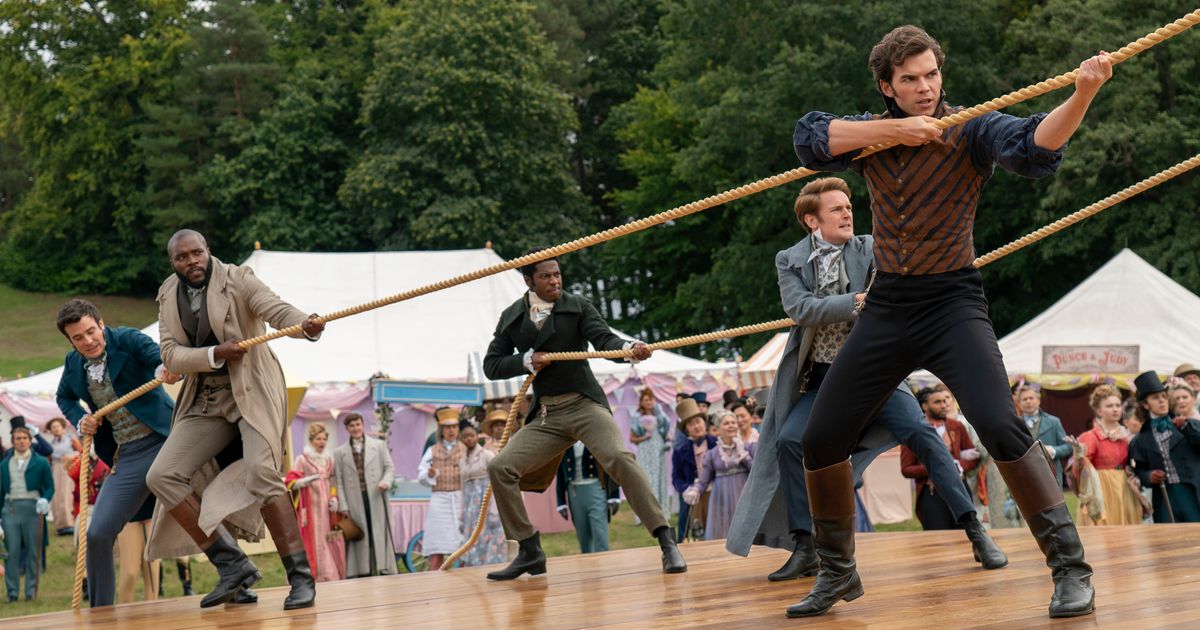“We started it off with a pale blue because she was marrying a Bridgerton, but it didn’t look quite right.”
Photo: Liam Daniel/Netflix
Spoilers for Bridgerton season three, part two follow.
Nothing epitomizes a Regency wedding quite like a string quartet playing one of Coldplay’s most annoying earworms — and a spectacular gown in which to march down the aisle. Such is the state of Penelope’s betrothal to Colin in the seventh episode of Bridgerton’s new season, with the couple overcoming some major Whistledownian revelations to exchange their “I dos” and live together in the holiest (and hottest) state of matrimony. When beginning to craft Penelope’s satin wedding dress, costume designer John Glaser knew he wasn’t going to select the ivory favored by previous Bridgerton brides for Penelope’s new “Marilyn Monroe silhouette.” “Wedding dresses at this time weren’t always white,” he says. “It’s just that the modern audience thinks of them as white.”
With history on his side, Glaser experimented with colors that would equally suit actress Nicola Coughlan’s skin tone and Penelope’s sleek style evolution. “We started it off with a pale blue because she was marrying a Bridgerton, but it didn’t look quite right,” he explains. Glaser describes the dress color as both pink and peach, a shade chosen foremost to flatter Coughlan’s features. “In the church, you’ve got one side with the Bridgerton family all wearing blue, and on the other side are the Featheringtons wearing their garish colors. No one in that world wears what we’ll call ‘peach,’” he says. “The other reason is her wedding veil is off-white. If the dress had been white, she would’ve looked like a nurse walking down the aisle with a white veil. This way the veil becomes an accent.”
Those who assumed Penelope would revert back to her siren styling — or Featherington flair — from the start of the season were mistaken. “We thought, Everyone is expecting some over-the-top wedding dress, but that’s not who she is anymore. It’s like the most stripped-down version of a dress. It has to be stunning and unexpected,” Glaser adds. “It’s not a caricature, and it’s not covered with flowers and trim. It’s just a beautiful shape to make her body look as beautiful as we could.”
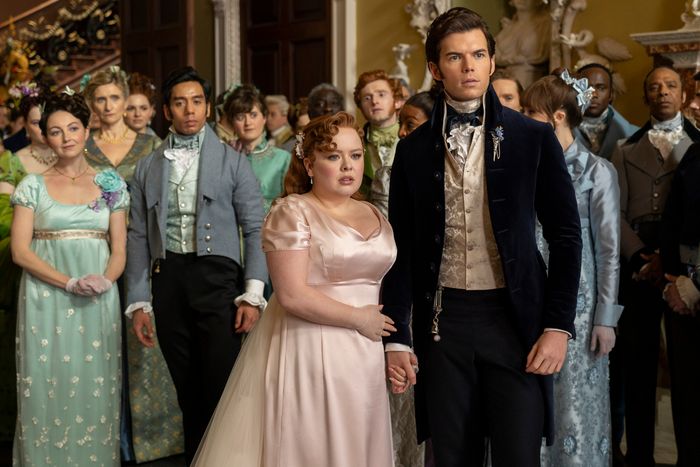
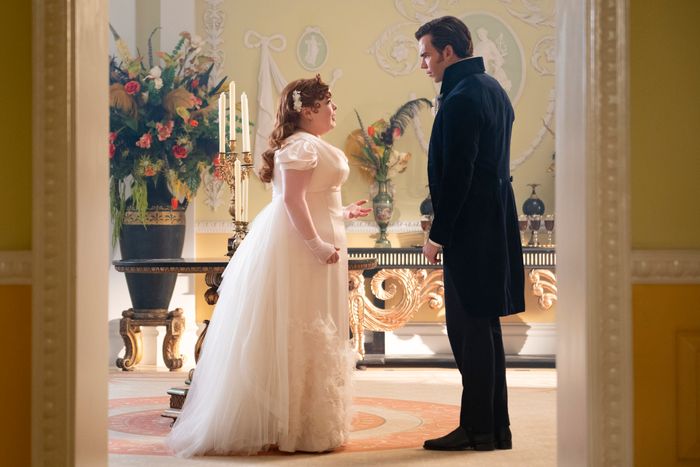
The dress at the reception breakfast. Liam Daniel/Netflix.
The dress at the reception breakfast. Liam Daniel/Netflix.
Hair-and-makeup designer Erika Okvist extended that directive. “We wanted to make her look as refined, elegant, and romantic as possible,” she explains. “We used makeup that worked with the color of the dress. With the hair, we not only thought about how it would look with the veil, but how it would look with the dress décolletage. It was very considered where all the curls or waves were going to go.” This is particularly rewarding when Penelope pulls a Lady Gaga at the Met Gala, removing half of her dress at the reception breakfast to spin around the ballroom with her new husband. “The costume, makeup, and hair should be a visual symphony that works together,” Glaser says. And for the final touch, “teeny-tiny opera gloves, just like an illusion. We wanted to show her skin,” Glaser adds. Most important: “We wanted to keep it simple, simple, simple.”




